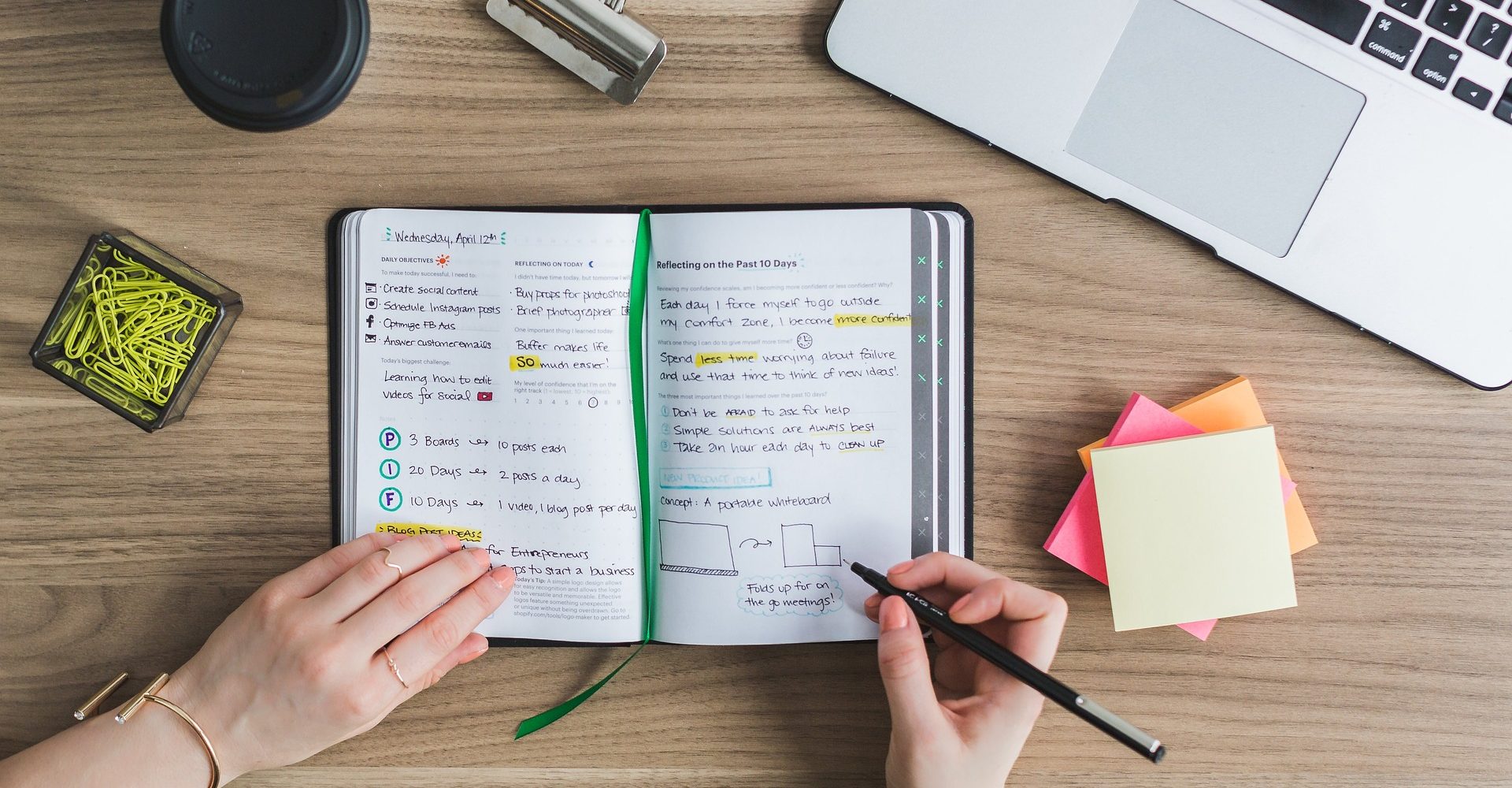
Welcome to WinnerTrick.com — the best source for success and personal development articles, motivational quotes, and tips to live your best life.
contact@winnertrick.com
Study for two minutes. Peek at Instagram. Study again for two minutes. Open Netflix. Another two minutes. Check your inbox. Two more minutes—and then an hour deep into TikTok. Sound familiar? If you’ve ever stared blankly at your study materials and felt like moving a mountain would be easier than cracking a textbook, you’re definitely not alone.
Speaking personally, I've been there—more times than I’d care to count. Days where I swore I’d study, hyped myself up mentally, even made colorful to-do lists… only to end up doing absolutely nothing. Sometimes I just sat there, locked in an internal tug-of-war, staring at unopened books or highlighted notes like they were written in an alien language. And honestly? I lost that battle more times than I won.

Before we dive into any strategy, there's one thing you must get crystal clear on: procrastination. It's not just laziness or a lack of willpower. It’s a psychological pattern—a trap your brain sets for itself. To put it simply, procrastination is what happens when your brain convinces you to dodge an unpleasant task by substituting it with something temporarily more satisfying.
Here’s the wild part—scientific studies show that your brain literally activates pain centers when you’re about to start a task it dreads. That dread creates avoidance, and in comes the comforting lure of distractions. But the truth is, there’s a way to break out of this.
To overcome procrastination and regain control, you’ll need to work on three fundamental steps:
Admit you’re procrastinating. Awareness is the first trigger for change.
Identify your triggers: When does it usually happen? What’s the emotional or environmental cue? Is it boredom, fear of failure, or something else?
Alter the habit loop: Every habit is made of a cue, a routine, and a reward. Swap out destructive cues and inject intentional rewards that support progress, not avoidance.
When you're already sitting there, paralyzed with no drive to begin, these on-the-spot strategies can break through that inertia.
Sometimes, all it takes to shake off mental fog is a change in scenery. I’m not saying knock down your bedroom wall, but when my mind’s in a slump, packing up my materials and heading to a local café—even one just around the corner—works wonders.
That environmental shift acts like a psychological reset. Your brain understands this new location as a cue: "We’re not here to scroll through memes—we’re here to get things done." This is why many people work better in offices or libraries—they've trained their brains to associate those places with productivity, not distraction.
If your main study area doubles as your entertainment zone (e.g., the same desk where you game or binge-watch), the environment itself might be tripping you up. By removing familiar "fun" cues—like your game controller or desktop shortcuts—you can reduce temptation before it even kicks in.

Rewards aren’t just for kids with chore charts—they’re core psychology. Every time you complete a study session and treat yourself, you strengthen the behavioral loop. Your brain learns, "Study = good things."
But here's the twist—rewards aren’t just for afterward. They can serve as a bribe to begin. Try promising yourself little treats based on study intervals:
Time-based: One gummy bear every 30 minutes of studying
Progress-based: Ten minutes on social media for every five pages completed
These motivators train your brain to view studying as a path to something enjoyable, making the task itself feel less daunting with time.
Some reward ideas:
Favorite snack or drink
A quick YouTube break
A walk around the block
A short jam session with your instrument or another hobby
The bigger the win, the bigger the reward should be. Got through a semester’s worth of material? Treat yourself to something meaningful that celebrates the effort.
Even the tiniest interruption can completely derail your study flow—especially when motivation is already low. To keep your brain from spiraling into distractions, prep your space like a monk’s study cave:
Put your phone on airplane mode—or better yet, leave it in another room.
Shut down your PC unless it’s absolutely necessary.
Turn off the TV or cover it with a blanket if it’s within view.
Choose a quiet, isolated area—and if studying outdoors, pick a spot where you won’t accidentally bump into chatty friends.
These adjustments don’t just remove distractions—they remove excuses. You reduce friction, making it easier to just start and stay in the zone.

When all else fails and you still feel stuck, the best trick in the book is to just start—but start really, really small. Yes, you can try the famous Pomodoro Technique, which involves studying in focused 25-minute blocks followed by 5-minute breaks. But let’s be honest—if you’re deeply unmotivated, even 25 minutes can feel like climbing Everest.
So what’s the alternative? Shrink it even more.
Tell yourself: “I’ll study for just five minutes.”
That small promise feels manageable. It doesn’t scare your brain into retreat. And here’s the beauty of it—research shows that the pain signals your brain sends out before doing a task actually fade shortly after you begin. Roughly five minutes in, the discomfort lessens and you often find yourself continuing past that mark without even realizing it.
I’ve tried this personally, especially during those mental brick wall moments. Five minutes sounded laughably easy. But it worked. More often than not, that “quick five” snowballed into 20, 30, or even an hour of solid studying. The hardest part is always starting—so make the start as gentle as possible.
Let’s talk physiology.
When your motivation flatlines, sometimes the answer isn't in the mind—it’s in your body.
Motion has a massive effect on mood and energy. It’s not a vague “get active” idea—changing your physical state shifts your mental state almost instantly. So next time you feel heavy and foggy, get up and move.
Try:
A few jumping jacks
A quick set of push-ups
Dancing to your favorite song
Running up and down your hallway or stairs
You don’t need a full workout—just enough movement to reset your nervous system and spark a fresh energy burst. Often, that little kick is all you need to sit down and actually start studying.
Now that we’ve tackled how to force yourself into studying when you're stuck in the moment, let’s look at what you can do beforehand to avoid falling into that state at all.
This might sound basic, but it’s foundational—how your body feels dramatically affects your mental performance. And studying, no matter how strategic, becomes a frustrating experience if your body is sluggish, unfocused, or in discomfort.
A few things to lock in:
Hydration is key. Dehydration impacts brain function more than people realize. Keep water at arm’s reach while studying so you’re not tempted to take distracting trips to the kitchen.
Don’t study right after a heavy meal. A full stomach draws blood away from the brain to help with digestion, making you sleepy and less alert. On the flip side, studying while hungry is just as bad—you’ll be distracted by cravings. Aim for balance: eat enough to feel comfortable, not stuffed.
Avoid sugar and processed junk foods before studying. Sure, they might give you a short buzz, but that energy spike quickly crashes, leaving you foggy, irritable, and more likely to give up mid-session.
From personal habit, here’s what works for me:
I eat just enough to feel satisfied—not full—and keep light, healthy snacks nearby for the session. I drink one coffee, max—more than that and my focus turns to jittery chaos. Near the end of my session, I allow myself a sweet treat for a final push. When I feel the sugar crash coming, that’s my cue to wrap it up.

Overwhelm is one of the biggest study killers. If you're staring down a mountain of material, it’s no surprise you feel paralyzed.
The solution? Break the task into tiny, doable pieces.
Instead of thinking “I have to study for a final,” think “I’ll review chapter 1’s key terms.” Tiny wins accumulate fast.
For example, if you're staring at a 50-page report, don’t try to tackle it in a day. Break it into sections—one per day, or even half a page per study session. Small progress builds momentum. It makes studying manageable and gives you a sense of control.
This idea ties into the mini habits concept: taking consistent, small actions that lead to bigger change over time.
We all need a reason to push through when things feel boring or hard. That’s where goal-setting and visualization come in.
Set a target: What’s the grade you’re aiming for? What skills do you want to master? Having this endgame in mind gives you something to aim at, especially when you’re tempted to give up halfway.
Once you set that goal, try visualizing the moment you reach it.
Picture acing the exam, receiving praise, or even just that feeling of knowing you did it. While I personally don’t lean heavily on visualization—I’m more action-oriented—it’s a popular technique that many find helpful. If you’re someone who’s inspired by imagining success, give it a shot.
Another powerful motivation booster is studying with others. When done right, group study creates accountability and momentum.
You’ll be less tempted to bail when someone else is expecting you to show up. Plus, bouncing ideas and explanations back and forth improves retention and makes concepts clearer. Just make sure your group stays focused. I’ve seen plenty of study groups turn into hangout sessions.
A few quick rules:
Choose serious study partners.
Keep the group size small (2–4 max).
Set clear goals before each session.

Here’s something that’s often overlooked: studying doesn’t have to be boring. If you actively reshape how you learn, you can make the process engaging, even fun—which naturally boosts your motivation.
Here are a few creative approaches to make your learning experience less of a chore:
Turn passive reading into active problem-solving
Instead of just flipping through pages and highlighting passively, solve practice problems or answer related questions. This makes your brain engage with the content directly, strengthening retention. It also adds a game-like challenge to your sessions, which keeps you on your toes and turns passive studying into a dynamic activity.
Use alternative learning platforms
Textbooks can sometimes drain your soul. Try learning the same topic from YouTube videos, interactive websites, or even podcasts. Hearing a passionate instructor explain something visually or with real-world examples can completely change how you relate to a topic—especially for subjects like math, science, or history.
Sketch it out with mind maps
Ditch boring linear notes and start using mind maps to organize information visually. This helps you connect concepts more intuitively and creates visual memory anchors. Plus, it’s actually fun to draw them out and customize them with colors and symbols.
Background music—but choose it wisely
If silence feels suffocating, try background music. But not just any music. Stick to instrumentals without lyrics, ideally in genres that relax or stimulate focus (like lo-fi, classical, or ambient electronica). That way, the music boosts your mood without pulling your attention away from the content.
When studying feels like an enjoyable activity instead of a punishment, your brain naturally resists procrastination less. It's all about reducing friction and making the task more rewarding in itself.
At the heart of long-term motivation lies a simple truth: if something becomes a habit, you no longer need constant willpower to do it. It just becomes part of your daily rhythm.
To build a study habit:
Schedule your sessions at the same time every day. Your brain begins to anticipate and prepare for the task, lowering resistance each time.
Repeat the cue–action–reward loop. The more often you associate a positive reward with your study time, the stronger the habit becomes.
Over time, the process becomes automatic. Instead of asking yourself, “Should I study today?”—you’ll just do it, like brushing your teeth or grabbing your morning coffee.
Stick with it long enough, and you won’t need motivational hacks. You’ll just study—without friction, without dread.
Here’s a truth that few people talk about: the better you become at learning itself, the more motivated you’ll be to do it.
Why? Because nothing fuels motivation like results.
When your study sessions lead to clear understanding, higher grades, faster comprehension, or “aha” moments—it creates a feedback loop of excitement. You start to believe, “Hey, I can actually do this.” That belief pushes you to keep going.
“Once you learn how to learn anything, you will want to learn everything.”
Mastering learning strategies—such as memory techniques, active recall, spaced repetition, and mental models—can make your study sessions twice as effective with half the effort. That efficiency fuels confidence. And confidence fuels motivation.
If you're not sure where to start, explore resources that focus on the science of learning itself. Books, blogs, YouTube channels, even online courses dedicated to learning techniques can revolutionize how you approach every subject.
The one thing to remember through all of this is: there is no perfect, one-size-fits-all formula for motivation. Every brain is wired differently.
Some people thrive on structure. Others need flexibility. Some get fired up by goals and grades. Others need the social aspect of a study group or the mental shift of a new environment.
The key is experimentation.
Try different techniques. Mix them up. Discard what doesn’t work. Refine what does.
The reason I can motivate myself more easily today is not because I found the ultimate hack—it’s because I tried everything. I failed, learned from it, tweaked my approach, and eventually built a toolkit of strategies that are uniquely effective for me.
And that’s what you need to do. Build your own system. Take these tools and shape them around your personality, your energy levels, your learning style.
Make sure you enter all the required information, indicated by an asterisk (*). HTML code is not allowed.